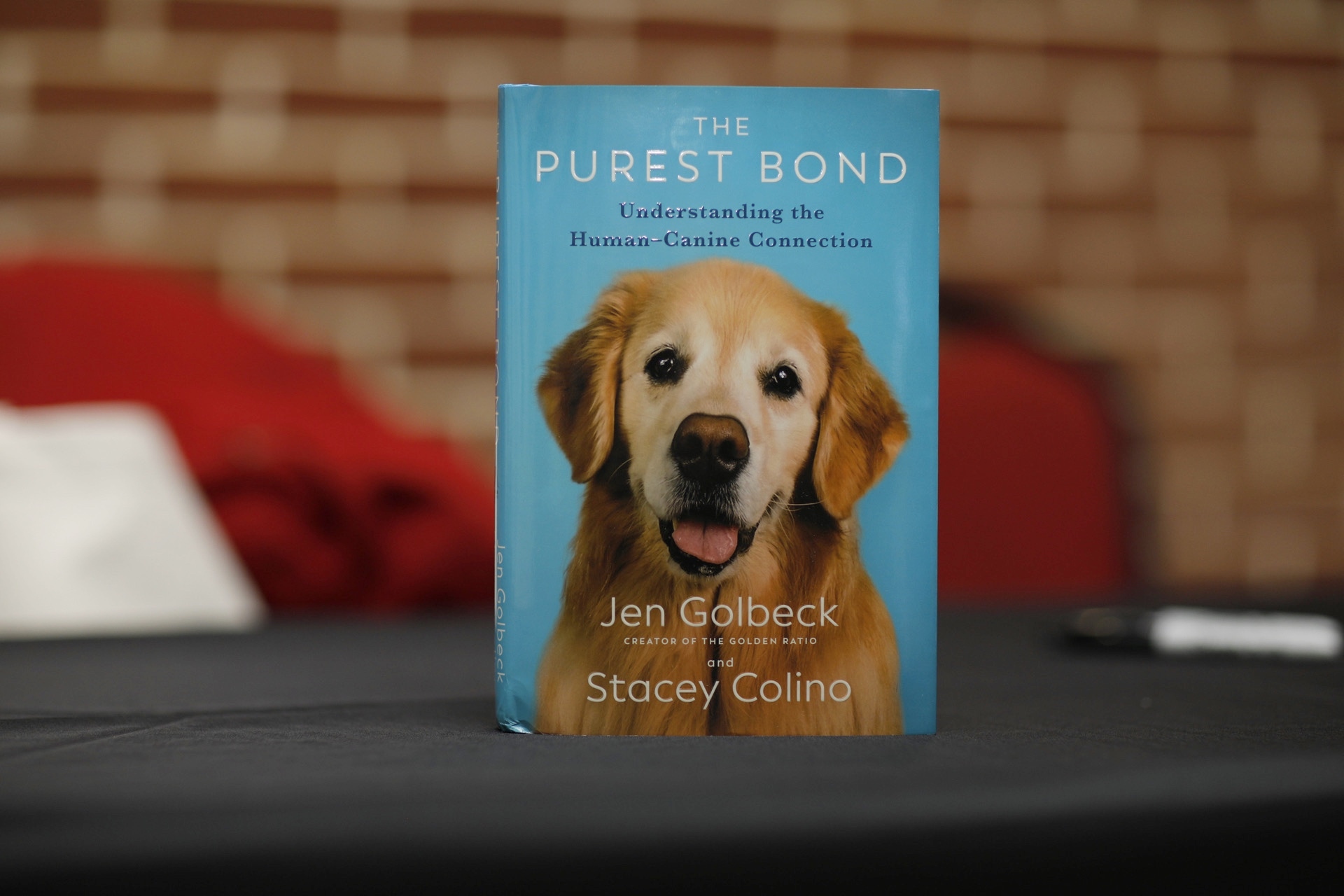Amanda Lee traveled from Gaithersburg to the University of Maryland’s alumni center Thursday, toting two copies of The Purest Bond: Understanding the Human-Canine Connection, for a presentation from information studies professor and the book’s co-author, Jen Golbeck.
Golbeck spoke to more than 75 university alumni and community members about her recently published book and discussed the emotional and neurological connection between people and dogs.
Golbeck and her husband rescue and foster golden retrievers. Golbeck’s social media accounts, called The Golden Ratio, feature images and videos of her golden retrievers and have amassed about one million followers across all platforms, she said.
“Jen is probably one of my modern-day heroes,” Lee said. “Their dogs bring me so much joy. Even though it’s a second hand experience, it really does impact me a lot.”
During the presentation, Golbeck described the attachment bonds dogs form with humans. She referenced a study that shows the part of a dog’s brain that lights up when they see their owner is the same part of the brain that lights up when an infant sees their mother.
[UMD Bat Fest offers spooky activities, science education]
Dogs also provide many mental health benefits, Golbeck said. The animals connect people with their communities, reduce anxiety and force them to get out of the house and exercise, she said.
“Really across the board, whether it’s day to day mental health, or dealing with really serious mental health issues, dogs are profoundly helpful to people,” Golbeck said.
The end of Golbeck’s book discusses grieving the loss of a dog. She described her recent experience putting down her dog, Hopper. Dog owners often deal with disenfranchised grief — a psychological term for when grief doesn’t fit within society’s attitude about death and loss, Golbeck said.
To deal with the loss of an animal, Golbeck recommended a “last best day.” On Hopper’s last day, she gave the dog something she always begged for: squares of Hershey’s chocolate.
Lee said the last chapters of the book were her favorite parts. While she doesn’t currently have a dog, she spends almost every weekend with her siblings’ dogs.
“The ending was super impactful. It teaches you all about how to get through end of life stages and and how to cope with the loss of somebody that made such a large effect on your life,” Lee said. “That’s extremely helpful because not everybody understands how to get through loss.”
[UMD professor wins the world’s most prestigious criminology award]
Matt Doyle, a veterinarian and Calvert Hills resident, came to the discussion with a friend to learn more about the science behind relationships between humans and dogs. He enjoyed learning about the similarities between dog and infant brain scans, he said.
Kathy Kleve, a university alum, attended the presentation because she’s a dog owner. She left with three copies of Golbeck’s book, one for herself and her two daughters. She enjoyed learning about how people bond with their pets and the different emotions dogs portray.
“[Dogs are] one of your best friends,” Kleve said. “They’re just always there for you.”
Golbeck started writing her book mid-2020 during the COVID-19 pandemic. She had a bleak outlook about the world during that time, she said. While it can be difficult to stay optimistic, Golbeck hopes the book will make readers feel better about their lives and relationships.
She also hopes readers and discussion attendees feel inspired to deepen their connections to their pets — and think about their dogs in a “fresh way.”
“We know that the dogs love us back,” Golbeck said. “Dogs make all the different parts of our life better.”



